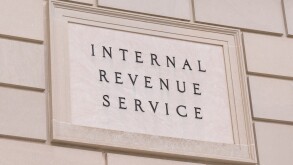This has given rise to a higher number of tax audits, leading inevitably to disputes between the authorities and taxpayers. Thus, even though the tax authorities tended in the past to exclude the most profitable companies from auditing due to their practice of paying significant taxes accordingly, in recent times there have been no such exceptions. All companies are subject to tax audits at five-year intervals, irrespective of the level of tax they are paying.
In this complex, challenging and ever-changing field of defending the taxpayer's position, providing tax and tax-procedure advice has become the best strategy. It has become imperative for taxpayers to seek specialised assistance from the early stages (i.e. examining their risk rating before an audit commences), and throughout the performance of the tax audit, as well as after its completion, while challenging the results of the audit during the proceedings.
Disputes about the decisions and measures taken by the RTA are frequent and involve specific, complex and even cumbersome proceedings of challenging the tax deeds, of suspending their effects, or of averting the enforcement of tax liabilities.
The tax authorities now often refer cases to the criminal investigation authorities when they suspect transactions made by the taxpayer are fraudulent. Moreover, in light of EU Council Directive 2016 / 1164 of July 12 2016 (Anti-Tax Avoidance Directive), additional measures will be implemented against tax avoidance practices that directly affect the functioning of the internal market. In this framework, special attention must be paid to any aspect that may raise suspicion of a criminal offence being committed by the taxpayer.
Several guarantees provided by tax laws for taxpayers should be observed by the tax authorities. These include: (i) observance of the statute of limitation (part of the controlled period might be time barred); (ii) compliance with the legal notice period (generally, a regular tax audit cannot lawfully start unless a grace period of 30 days has been provided beforehand); (iii) exercising the taxpayer's right to ask for a deferral of the audit (in this context, the role of the specialised lawyer becomes essential in arguing the validity of the grounds for postponement); (iv) observance of the sole tax audit rule (a certain type of tax due in a fiscal interval should be audited only once); and (v) observing the maximum duration of the tax audit.
For example, a tax audit cannot exceed 360 days for large taxpayers; until 2016, even if the same rule regarding the duration of the tax audit was applicable, there was no sanction if the control body did not observe this. Therefore, in the past, the unlawful overrun of the term led to abuse by the authorities and a tax audit could take up to four or five years without sanction of the tax bodies. This entailed, in addition to continued pressure on the taxpayer, huge amounts of penalties, sometimes surpassing the main debt (the law does not provide for a capped amount) and a new tax audit due to expiration of the five-year statute of limitation.
To prevent such abusive behaviour, the new Tax Procedure Code that entered into force at the beginning of 2016 contained an important amendment, namely that a tax audit ends automatically if it exceeds double the maximum duration set by the law. In this case, the tax authorities can resume the audit only once and with the approval of the superior which approved the initial audit and within the confines of the limitation period.
Another eventuality that may appear during the tax audit is the suspension of the audit. In this case, the taxpayer must understand that their role is not just as a participant to the audit, but that they can actively participate and influence the outcome by challenging unlawful acts and measures by the tax authorities. For instance, the suspension of the tax audit must be based on strong legal grounds and entirely motivated by the tax authorities, otherwise the taxpayer may challenge it and obtain its annulment.











